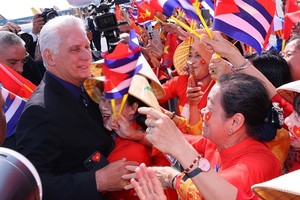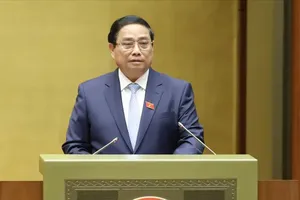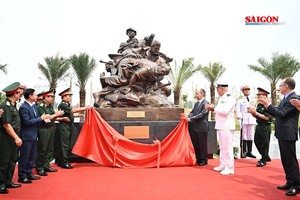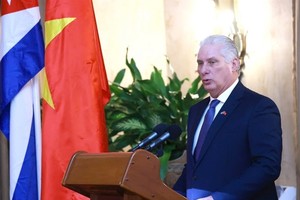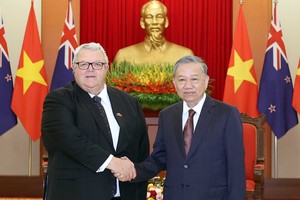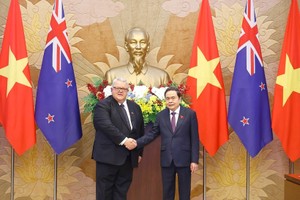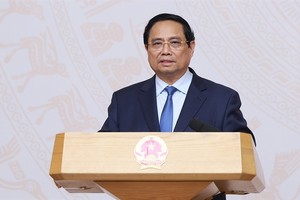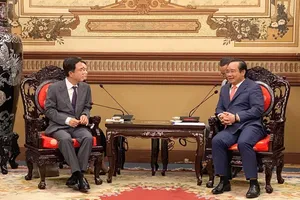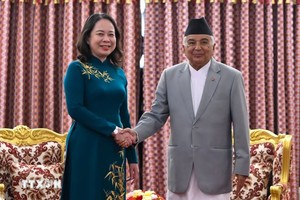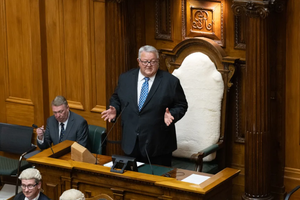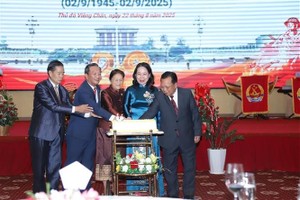Syrian rebels in the northern province of Aleppo on Monday threatened to seize two Shi'ite Muslim villages that back President Bashar al-Assad unless they surrendered to the opposition.
Activists say both Nubl and Zahra villages had been reinforced by Assad's allies in the increasingly sectarian war, among them fighters from Iran and Lebanon's powerful Shi'ite guerrilla group, Hezbollah.
"We announce our intention to liberate Nubl and Zahra from the regime and its shabbiha (pro-Assad militia), and from the Hezbollah and Iranian elements," the rebels said in an Internet video.
The 27-month-old conflict, which pits mostly Sunni insurgents against Assad, from an offshoot of Shi'ite Islam, has already killed more than 100,000 people and driven 1.7 million Syrians to seek refuge in neighboring countries.
Assad's forces, spearheaded by Hezbollah, have made a number of gains since they seized the border town of Qusair last month. There have also been heavy clashes in Aleppo and surrounding districts, fuelling expectations that Assad aims to re-establish control of Syria's largest city.
On Sunday rebels shot down a helicopter close to Nubl, which activists said had been carrying supplies to the villages. Authorities in Damascus said they were taking Education Ministry employees to supervise school exams. Seven employees and the helicopter crew were killed, they said.
A video released by activists a few weeks earlier showed an army officer apparently recruiting Shi'ite villagers in Zahra and Nubl to form fighting units to support the army against the rebels.
PREVENT A SINGLE DROP OF BLOOD"
"In order to prevent a single drop of blood from being spilled and to find a peaceful solution, we have set the following conditions," the video statement by the rebels said.
Among the demands were the surrender of Assad's forces and their weapons, followed by a power sharing deal between the locals and the rebels.
."
View gallery
A man sits next to the damaged area outside Khalid bin al Walid Mosque in Homs June 30, 2013. REUTER …
"If there is no response (to rebel demands for surrender) there will be a major military operation on those two villages," the statement said.
The sectarian nature of the conflict has set regional Sunni Muslim powers - notably Gulf Arab states and Turkey - against Assad's Shi'ite Iranian and Hezbollah allies in a deepening proxy war on Syrian soil.
Deputy U.S. Secretary of State William Burns, speaking at the end of a visit to neighboring Lebanon, condemned Hezbollah's military intervention in Syria.
"Despite its membership in the Lebanese government, Hezbollah has decided to put its own interests and those of its foreign backers above those of the Lebanese people," Burns said.
"We condemn in the strongest terms Hezbollah's actions in Syria. They ... stand in direct violation of Lebanon's disassociation policy (from Syria) and place the future of Lebanon at risk."
Hezbollah's role in Syria, along with Sunni Islamist fighters smuggled over the border to fight for the Syrian rebels, has exacerbated sectarian tensions in Lebanon which is still scarred by its own 1975-1990 civil war.
Fighting has broken out in the Mediterranean cities of Tripoli and Sidon, while rockets have been fired at a Hezbollah district of southern Beirut and in the Bekaa Valley.
Saudi Arabia, which has accelerated armed support for the rebels according to Gulf sources, urged the European Union on Monday to arm Syrian rebels without delay.
Riyadh and its partners in the Gulf Cooperation Council also called on the United Nations Security Council to meet to prevent a massacre in the central city of Homs, where Assad's forces have been waging an assault on rebel-held districts.
The Syrian Observatory for Human Rights reported heavy army bombardment and clashes with rebel fighters for a third day in the contested city, which sits on an axis connecting Damascus to the heartland of Assad's minority Alawite sect in the hills overlooking the Mediterranean.
It said neither side appeared to be gaining any ground.
